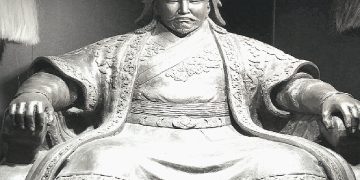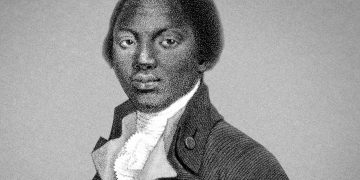Voltaire: a prominent French writer, philosopher, and historian
Voltaire, whose real name was François-Marie Arouet, was a prominent French writer, philosopher, and historian of the 18th century. He was born on November 21, 1694, in Paris, France. Throughout his life, Voltaire made significant contributions to various fields, including literature, philosophy, and social justice.
Voltaire’s literary works were characterized by his wit, satire, and sharp criticism of the French monarchy, the Catholic Church, and social injustices prevalent during his time. His most famous work, “Candide,” is a satirical novel that critiques the optimism of the Enlightenment era and exposes the flaws of society through the adventures of its protagonist.
In addition to his literary achievements, Voltaire was a staunch advocate for freedom of speech and religious tolerance. He famously defended those who were unjustly persecuted for their beliefs and fought against censorship and religious intolerance. Voltaire’s famous quote, “I disapprove of what you say, but I will defend to the death your right to say it,” embodies his commitment to free expression.
Voltaire’s contributions to philosophy were also significant. He believed in the power of reason and rationality and was a key figure in the Enlightenment movement. His philosophical writings emphasized the importance of critical thinking, skepticism, and intellectual freedom. Voltaire’s ideas greatly influenced the development of modern political and social thought.
Furthermore, Voltaire was an avid historian and made significant contributions to the field of historiography. He wrote extensively on various historical events, including the French monarchy, the Church, and the Enlightenment. His historical works were characterized by his meticulous research, objective analysis, and sharp insights into the political and social climate of his time.
Additional details about the life of Voltaire and his achievements:
1. Early Life and Education: Voltaire was born into a middle-class family in Paris. He received an excellent education at the Jesuit college of Louis-le-Grand, where he developed a passion for literature and philosophy. However, his rebellious nature often clashed with the strict educational system, which would shape his critical thinking later in life.
2. Exile and Imprisonment: Voltaire’s sharp wit and satirical writings often landed him in trouble with the authorities. In 1717, he was exiled to the Château de Sully after writing a scathing poem mocking the French Regent. Later, he spent nearly a year in the Bastille prison for insulting the powerful Chevalier de Rohan. Read more here.
3. Philosopher and Social Reformer: Voltaire was deeply influenced by the ideas of the Enlightenment, a philosophical and intellectual movement that emphasized reason, science, and progress. He used his writings to challenge the authority of the Church and the monarchy, advocating for social and political reforms.
4. Advocacy for Religious Tolerance: Voltaire was a strong advocate for religious tolerance and fought against religious persecution. He believed that individuals should have the freedom to practice their faith without interference from the state or the Church. His essay “Treatise on Tolerance” remains a significant work on the subject.
5. Contributions to Literature: Voltaire was a prolific writer who produced a vast body of work, including plays, essays, poetry, and historical works. Apart from “Candide,” he wrote plays such as “Zaïre” and “Mahomet” that tackled themes of religious intolerance and political corruption.
6. Influence on the American and French Revolutions: Voltaire’s ideas on freedom, equality, and the separation of powers had a profound impact on the American and French Revolutions. His work, along with other Enlightenment thinkers, laid the intellectual groundwork for the principles of these revolutions.
7. Legacy and Impact: Voltaire’s writings continue to be studied and celebrated for their wit, intelligence, and social commentary. His ideas on religious tolerance, freedom of speech, and the importance of reason and rationality have had a lasting influence on Western thought.
Voltaire’s life and achievements embody the spirit of intellectual curiosity, social reform, and the pursuit of truth. His works continue to inspire and challenge both scholars and activists in their quest for a more just and enlightened society.
Voltaire’s life was marked by his tireless pursuit of truth, justice, and intellectual freedom. Despite facing numerous challenges and controversies throughout his career, he remained steadfast in his beliefs and continued to advocate for social and political reform. His writings and ideas continue to inspire scholars, philosophers, and activists to this day.
In conclusion, Voltaire was a multi-talented individual who made significant contributions to literature, philosophy, and social justice. His wit, satire, and critical thinking have left a lasting impact on society, challenging the status quo and advocating for freedom of speech and religious tolerance. Voltaire’s life and achievements serve as a testament to the power of ideas and the importance of questioning authority. Read About Pierre Bayle Here













Comments 1